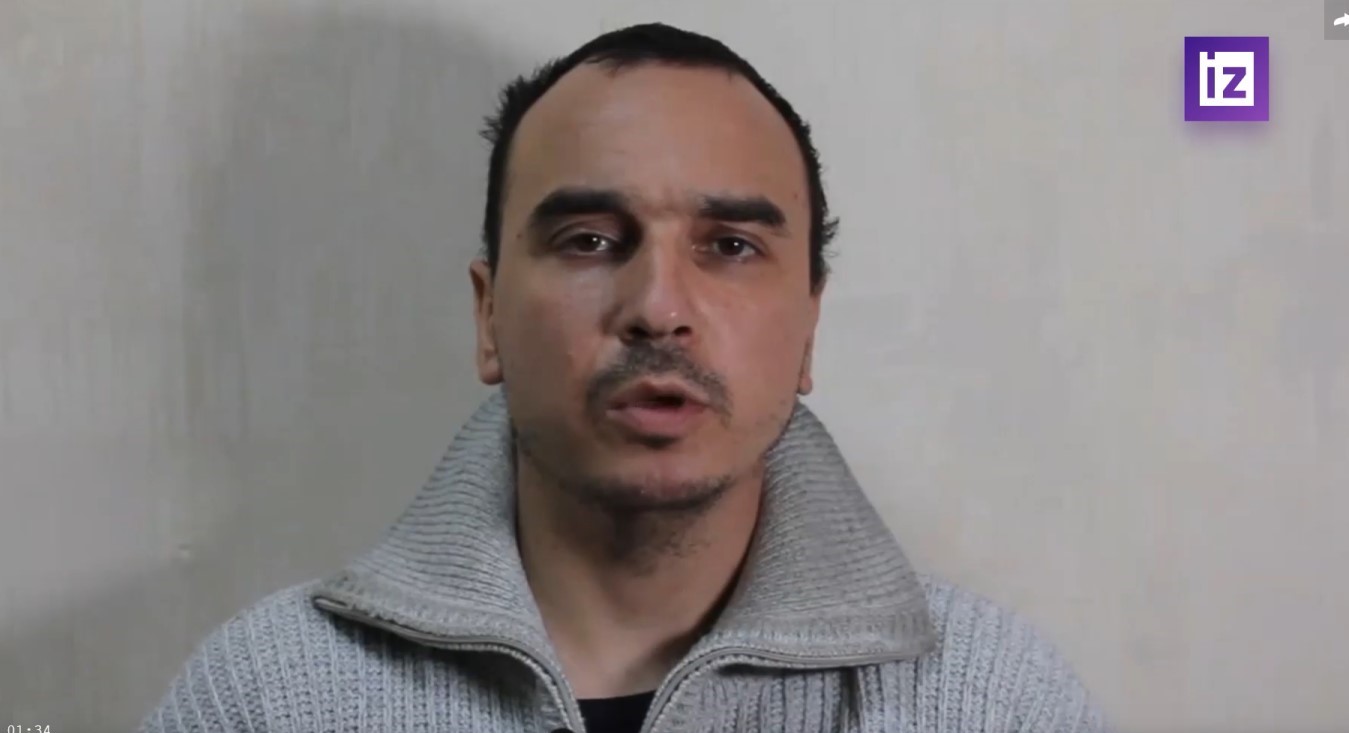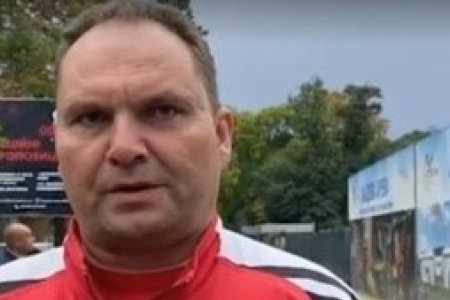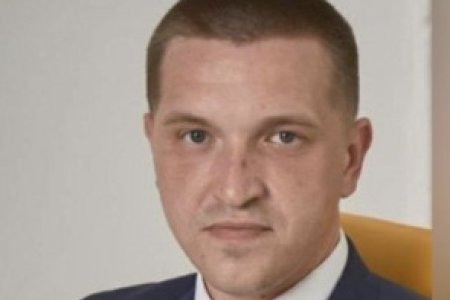
A court in Russia is about to begin a surreal ‘trial’ aimed at rewriting the facts of Russia’s full-scale invasion of Ukraine and claiming the right to abduct Ukrainians from their homeland and accuse them of ‘international terrorism’. The Southern District Military Court in Rostov has been notorious since 2014 for politically motivated sentences against Crimean Tatars and other Ukrainians, and guilty verdicts from this extraordinary travesty seem guaranteed.
It was not quite as predictable that a once reputable Russian publication like Kommersant should be complicit with the current regime in deliberately turning facts on their head. In reporting that the ‘trial’ of five Ukrainians is due to begin in late April, Kommersant called the men “participants of the Melitopol terrorist underground” and spoke of “a criminal prosecution about Ukraine’s organization of a terrorist underground on Russia’s new territory to carry out acts of international terrorism”. Even according to Moscow’s false narrative, Melitopol and other parts of Zaporizhzhia oblast currently under its control were only annexed after a fake ‘referendum’ in September 2022. All five Ukrainians: Andriy Holubiev; Ihor Horlov; Yury Petrov; Oleksandr Zhukov and Volodymyr Zuyev had been abducted from their homes in Melitopol six months earlier, in April 2022. They were illegally taken, first to occupied Crimea, and then to Russia, where they are imprisoned in the Lefortovo Prison in Moscow. The five Ukrainians were on their own land, unlike the Russian military and FSB who illegally abducted and then tortured them into ‘confessing’ to grotesque charges.
Kommersant’s version does not, of course, mention the torture, although this is by far the most obvious (and common) reason for the behaviour described. The men had ‘partially admitted the charges’ while effectively victims of enforced disappearances held incommunicado. They retracted such ‘confessions’ once they had been officially detained (and could no longer be simply killed without any record) and provided with access to lawyers. Kommersant claims that “the majority” have retracted earlier ‘confessions’, without providing any further information.
The report gives the FSB’s version, namely that “five former and current members of Ukraine’s Armed Forces were preparing an attack on a humanitarian convoy in Zaporizhzhia oblast and on the Russian military guarding it.” Three of the men: Andriy Holubiev; Oleksandr Zhukov and Volodymyr Zuyev are claimed to be from Ukraine’s Territorial Defence, while Ihor Horlov is referred to as a Ukrainian contract solder. The fifth man, Yury Petrov, is said to have been dismissed from the army and retired. All are alleged to have been members of ‘the Union of participants in ATO [the Anti-Terrorist Operation, or military action in Donbas from 2014], with this supposedly headed by Volodymyr Minko. The FSB (and Kommersant) assert that weapons and explosives were found during the ‘searches’ of their homes.
There is no proof of this, nor, indeed of any part of the FSB ‘version’. The FSB has long reported ‘thwarting’ acts of sabotage, with the only evidence of such ‘plans’ invariably provided either in ‘confessions’ that are later retracted, or by ‘secret witnesses’ whose testimony cannot be verified.
Melitopol was invaded and occupied by the Russians shortly after the full-scale invasion of Ukraine, and there would be nothing at all illegitimate about attempts to resist Russia’s illegal act of aggression. In this case, however, it is likely that most, if not all, of the men were targeted because of their past role in defending Ukraine, rather than activities after 24 February 2022.
There are no grounds for believing that a ‘humanitarian convoy’ would have been viewed as a legitimate target unless it was, in fact, a cover for the movement of Russian military personnel or equipment. Such a purported target was, however, needed for the Russians to claim an ‘act of international terrorism’. The FSB asserted that the Ukrainians had been “planning an act of international terrorism since it was aimed against civilians of Ukrainian and the Russian Federation for the purpose of disrupting the peaceful co-existence of states and peoples and against the interests of the Russian Federation.” This, t should be stressed, is the claim made by the security service of a country that invaded its neighbour and has tried to annex large parts of its territory.
The ‘investigation’ was carried out by the Russian FSB in occupied Crimea, which has been known for its use of torture and shoddily fabricated evidence since 2014. Here, the FSB assert that the men were planning to hide explosives in the front bumper of a car with the explosive purportedly intended to detonate when a vehicle with humanitarian aid passed by. The men are charged under Article 361 of Russia’s criminal code (‘an act of international terrorism’; Article 30 § 1 (planning or attempting a crime) and Article 205.4 § 2 (‘taking part in a terrorist organization’).
The FSB are claiming that Ihor Horlov prepared the ‘bomb’ and placed it in the car, as well as being involved in “looking for other means of carrying out a crime, organizing hiding places and moving weapons and ammunition to them.
Yury Petrov, who is at least 61, is alleged to have kept “a whole arsenal of weapons and ammunition in his garage and also been involved with hiding places”.
Volodymyr Zuyev is accused of having helped to follow the movements of Russian military and provided information to the others about places of deployment. Andriy Holubiev is accused by the FSB of collecting information about the places and times that humanitarian aid was handed out. Both Zuyev and Holubiev are also alleged to have looked for accomplices and organized anonymous communication between them on Threeme Messenger. Oleksandr Zhukov is supposed to have looked for information about places of deployment of Russian forces, weapons, etc., and also in carrying out other ‘tasks’ supposedly set by Volodymyr Minko.
As earlier reported, 35-year-old Ihor Horlov had served in a Ukrainian military unit in Melitopol right up to Russia’s invasion. He knew that this would make him a target and was, therefore, living in hiding. He was, nonetheless, seized by the Russians on 6 April 2022. During the next week, his telephone continued to respond to messages with the invaders presumably using this to try to identify other contacts.
On 22 April, he was shown on a Russian propaganda video, supposedly ‘confessing’ to the above charges.
Andriy Holubiev (b. 1977) is from Melitopol and a graduate of the Melitopol Pedagogical University. He is well-known in the city as a popular Kung Fu trainer, especially of children, and is also the head of the Melitopol Kung Fu Association. He was probably targeted because he had worked as a Ukrainian border guard for a year, from December 2020. According to his wife, he certainly opposed Russia’s invasion, but had health issues that meant he was scarcely leaving their home. He is now in danger of being crippled for life because of Russia’s treatment of hm.
Volodymyr Zuyev is a 44-year-old IT specialist and was in the Melitopol Territorial Defence reserves.
Yury Petrov is 61 and lived with his family in Melitopol, where he is registered.
Oleksandr Zhukov (b. 1969) was seized by the Russians on 7 April. His daughter, Yevhenia, explained to the Centre for Journalist Investigations that the family had not believed they would come for her father and had not even agreed beforehand what to say about his military service.
It is quite possible that the men had never set eyes on each other before the FSB abducted them. All face life sentences on charges that bear no scrutiny.



